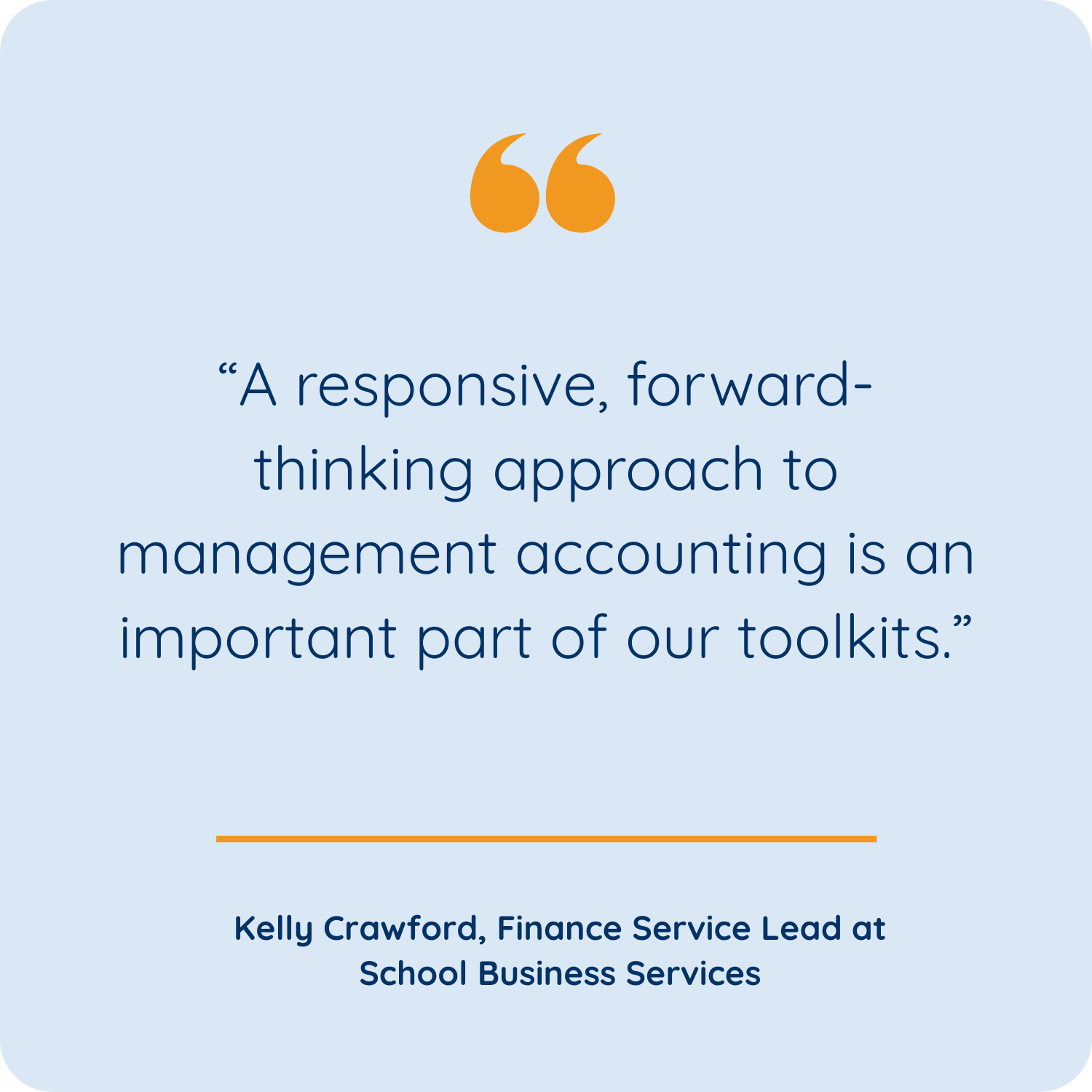Kelly Crawford of School Business Services on why a shift to more responsive management accounting could aid Trusts as they navigate through difficult times.
Mounting Financial Pressures
Trust leaders up and down the country are all too aware of budget pressures that continue to bite.
Rising costs, including National Insurance and living wage increases, have done much to exacerbate that uncomfortable feeling for Trust leaders. The BBC recently reported IFS warnings of school costs outpacing funding by 0.8 per cent in the 2025-26 financial year.
The figures stated in the IFS report – the difference between cost inflation of 3.6 per cent compared to the 2.8 per cent funding increase – immediately conjures up a myriad of difficult choices for some Trust CFOs if they are to make the books balance.
From Static to Strategic
To be a useful aid to fast moving decision making, management accounts need to shift from being a static, largely retrospective process to one that is altogether more dynamic and relevant.
Of course the Academies Trust Handbook has for several years stipulated that management accounts are done monthly but once the budget is set it's really important that it is monitored effectively against actual and reforecast income and expenditure via the management accounts and that they are used as a tool to make proactive decisions about finances.
A Proactive Approach: What It Looks Like
But what does a proactive approach to management accounts look like? Here’s a quick checklist:
- Efficient. They should be efficient and produced in good time. Having a good finance/budget system can facilitate this, ideally so that reports don't need lots of manipulation or manual input.
- Correct. If decisions are going to be made based off these figures, there must be assurance that they are correct. The Trust needs to have processes in place for checking accuracy, such as monthly control account reconciliations. Ideally, management accounts should be prepared in the same way as the annual accounts, that is on an accruals basis.
- Clear. Reports should be accessible and immediately understandable to a range of different audiences. For example, Trustees should receive high level reports that bring exceptions to their attention. A written report that complements the financial statements should highlight reasons for any significant variances and their impact on the full year forecast. For example, timing differences will not change the full year forecast, but unexpected expenditure will decrease the forecast surplus.
- Forward-thinking. Regular re-forecasts should be built into the management accounts to show the latest estimates for the full year; the full year forecast can be compared to the budget to show what has changed since it was approved. Again, good budgeting software can help forecasts in a wide range of areas including payroll reconciliations and budget monitoring reports. I like to include the forecast reserves balance too, so that possible future deficit balances are identified and can be actioned as soon as possible.
Tools and Resources Available
There’s plenty of good advice available out there. The Department for Education has issued a good practice guide which includes a suggested management accounts layout. This provides suggestions for presenting management accounts that meet the requirements of the Academy Trust Handbook.
SBS also offers strategic support on a flexible basis (from one day to several) depending on what your school or Trust needs with SBS ICFP and finance support services.
A Crucial Part of the Toolkit
It’s going to be a choppy ride for Trusts for the foreseeable future, so every step we can take to mitigate the discomfort is well worth considering, and a responsive, forward-thinking approach to management accounting is an important part of our toolkits.


Authored by Kelly Crawford
Finance Service Lead
Kelly is a CIMA-qualified accountant and former MAT CFO who joined School Business Services in 2022 as a Senior Finance Consultant. In this role, she helped clients streamline financial processes and produce accurate financial information to support decision-making.
Kelly Crawford is Finance Service Lead at School Business Services, which provides educational consultancy services and financial planning and forecasting software for more than 2,500 UK schools and academies.
Get sector Insights delivered straight to your inbox.
Subscribe to to the SBS Blog and never miss an update.

